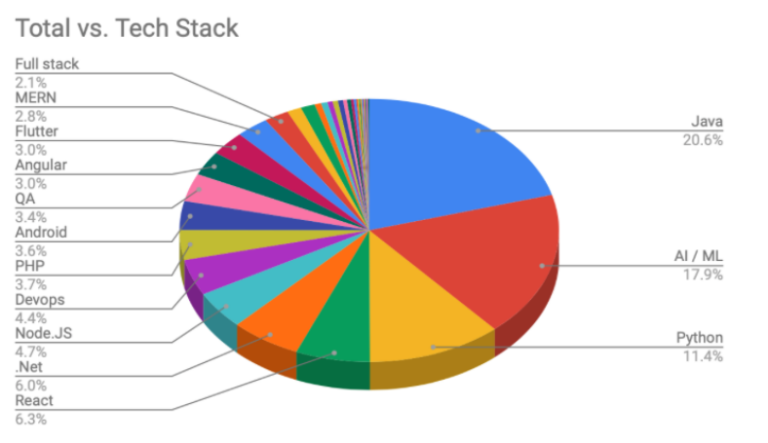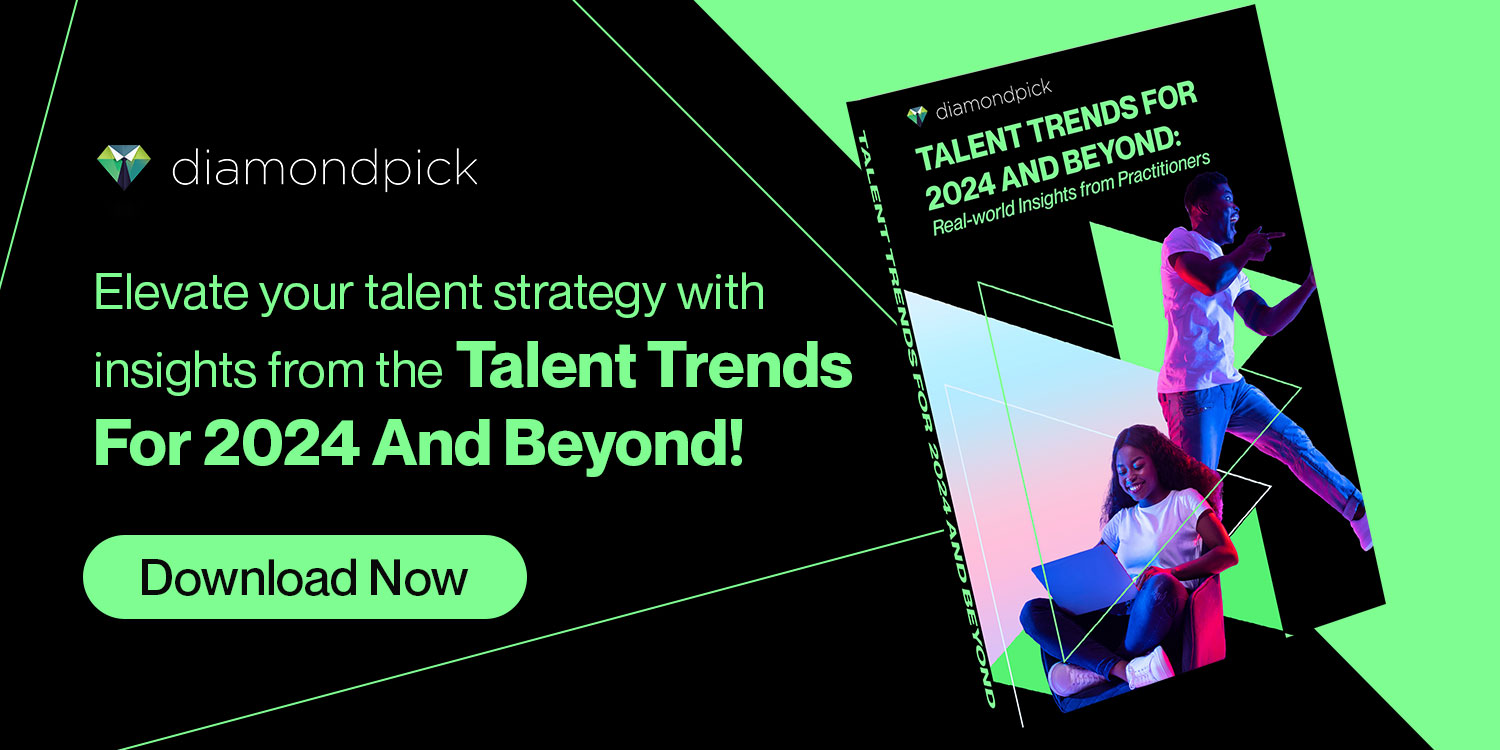
The big questions most businesses face today are: Is our company talented enough? Do we have the skill sets we need to achieve critical business objectives? And, if we don’t, how are we going to achieve them? For professionals, they want to know: do we have what it takes to stay relevant, and how to stay ahead of tech advancements?
The Rise of Skills-Based Talent Strategies
Individual skills over traditional credentials are fast becoming the new currency of work. Rather than thinking about people and jobs, companies are focussing on the tasks that need to be carried out, and the skills needed to do them. For professionals, skilling presents exciting new career opportunities, greater job security, and the prospect of a bigger paycheck.
From upskilling initiatives and career pathing to innovative workforce management and skills-focused hiring practices, organizations are increasingly harnessing the power of skills to drive their talent management strategies forward.
Organizations are adopting skills-based hiring as a forward-thinking approach due to various factors such as declining birth rates, aging populations, decreasing university enrollment, and rapidly evolving skill requirements. This shift has prompted employers to reassess the importance of education, experience, and skills as indicators of success.
The focus is now on a more holistic view of talent, encompassing early career talent and a more flexible workforce, driven by skills-first strategies.
Bridging the Skills Gap
The recruitment philosophy has shifted from attitude and aptitude to skills. Organizations are moving toward a whole new operating model for work and the workforce that places skills over qualifications.
According to the World Economic Forum’s The Future of Jobs Report, there will be a 44% disruption of skills in the next five years.
A significant gap exists between employer needs and the requisite skills for both current and future industries. Skilling systems need to be reoriented to cater to the demands of industry, modern organizations, and emerging service sectors shaped by tech advancement.
In this new era, skilling can no longer be a one-time investment; workers must adopt a new paradigm of lifelong, flexible, customized, and contextual learning through training and certifications on the go.
The rise of AI and ML: is increasing the demand for skills to integrate these technologies into various business functions.
Soft Skills: like emotional intelligence, creative thinking, and problem-solving are on the rise to help navigate complex social dynamics.
Skills to Supplement Automation: Automation is replacing tasks by the minute – intuitive thinking, wisdom, empathy, and creativity skills will increasingly be in demand to supplement automation.
Reverse-Mentoring: earlier models of seniors training and mentoring the younger workforce is changing with the rise of ‘reverse-mentoring,’ as the younger cohorts are more digitally savvy.
Unlearning: is important to give way to the fresh perspectives and mindsets that the modern workplace demands.
Preparing for the Future of Work in the Age of AI and Automation
As AI-driven systems increasingly become part of daily operations, the demand for skills is accelerating.
AI is reshaping industries, automating tasks, and augmenting human abilities. To cope with these disruptions, a number of organizations are investing heavily in upskilling their workforces with:
| AI Literacy Training | Collaboration with AI Experts | Continuous Learning Culture |
|---|---|---|
| AI fundamentals and ethical considerations to enhance AI literacy within recruitment teams. | For a comprehensive understanding of AI's impact on business practices. | To adapt to evolving technologies and stay ahead of industry trends. |
Skilling Innovations for the Future
In a technology-driven world, skills that are in demand are constantly evolving. Upskilling will focus on individual development, increased productivity, and workforce efficiency. Here are some upskilling trends:
- Immersive Experiential Learning Experiences: to help gain hands-on experiences in controlled virtual environments that mimic real-world scenarios.
- AI-powered Learning Environments: to offer personalized skilling programs, content, and assessments.
- Internal Upskilling: We can expect to see more internal upskilling, where organizations invest in training their existing employees for specific skills rather than hiring externally. This helps to close skill gaps in a more cost-effective way and is beneficial for employees as it promotes career growth within the organization.
- Specialized Training: to improve efficiency and adaptability in a specialized skill set
- Continuous Learning: for organizational agility in response to changing market situations. Helps workers and organizations stay competitive in a rapidly changing environment.
Skills in demand across technologies in 2023-2024

The Role of Gen AI in Skilling & Talent Development
Gen AI solutions have the potential to cause an enormous disruption in the skilling space. It can be leveraged for:
Skills Gap Analysis: Gen AI can help identify missing or underdeveloped skills to build targeted development programs that address these gaps.
Personalized Learning Paths: Gen AI-driven algorithms can tailor learning paths based on individual skill gaps, preferences, and career goals, enhancing the efficiency and effectiveness of upskilling programs. We have developed a patent-pending AI/ML algorithm that predicts talent best suited to specific technologies and jobs in the early stages of grooming.
Gamification and Virtual Reality: Incorporating gamification and virtual reality technologies to create immersive and engaging learning experiences.
Adaptive Development Plans: Everyone learns differently. Gen AI will be able to create employee development plans and adjust the level, pace, and content to accommodate each learner’s progress.
Assessments and Development: Gen AI will be able to analyze employee performance and competencies to help identify and develop high-caliber talent.
Building a Future-Ready Workforce
With opportunities to leverage and gaps to close, the skills game is advancing.
Continuous Learning Culture can be an absolute game-changer for employees and employers.
Employers must implement skills-based hiring and assessment practices to prepare for 2024 and beyond.
Skill-Based Assessments: Implementing skill-based assessments during the recruitment process helps to identify candidates with practical capabilities or mindsets relevant to the specific roles.
Partnerships with Educational Institutions: Collaborating with institutions that specialize in experiential learning over certificate-based training will ensure a pipeline of candidates with the required specialized skills.
Experiential Learning Opportunities: It’s important to offer opportunities for employees to put their skills to the test to evaluate their skills in practical scenarios.
Organizations need to invest in skilling and learning to stay ahead of advancements in the world of work. They need to develop a:
Holistic Approach to skill development, helping employees identify skill gaps, offering diverse learning opportunities, and aligning skill development with organizational objectives.
Continuous Improvement Mindset where learning is a continuous process rather than a one-time investment.
Strategic Partnerships with educational institutions and skill development organizations with a focus on experiential and job outcomes to ensure relevance and effectiveness in skill development initiatives.
As we move towards the workplace of the future, remaining complacent just isn’t an option anymore. Organizations and individuals need to stay ahead of the latest technologies and advancements in the world of work.

For more insights, strategies, and tools that will help organizations navigate the dynamic talent market read Diamondpick’s Talent Trends 2024 eBook. Download your copy today!
